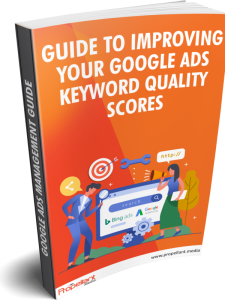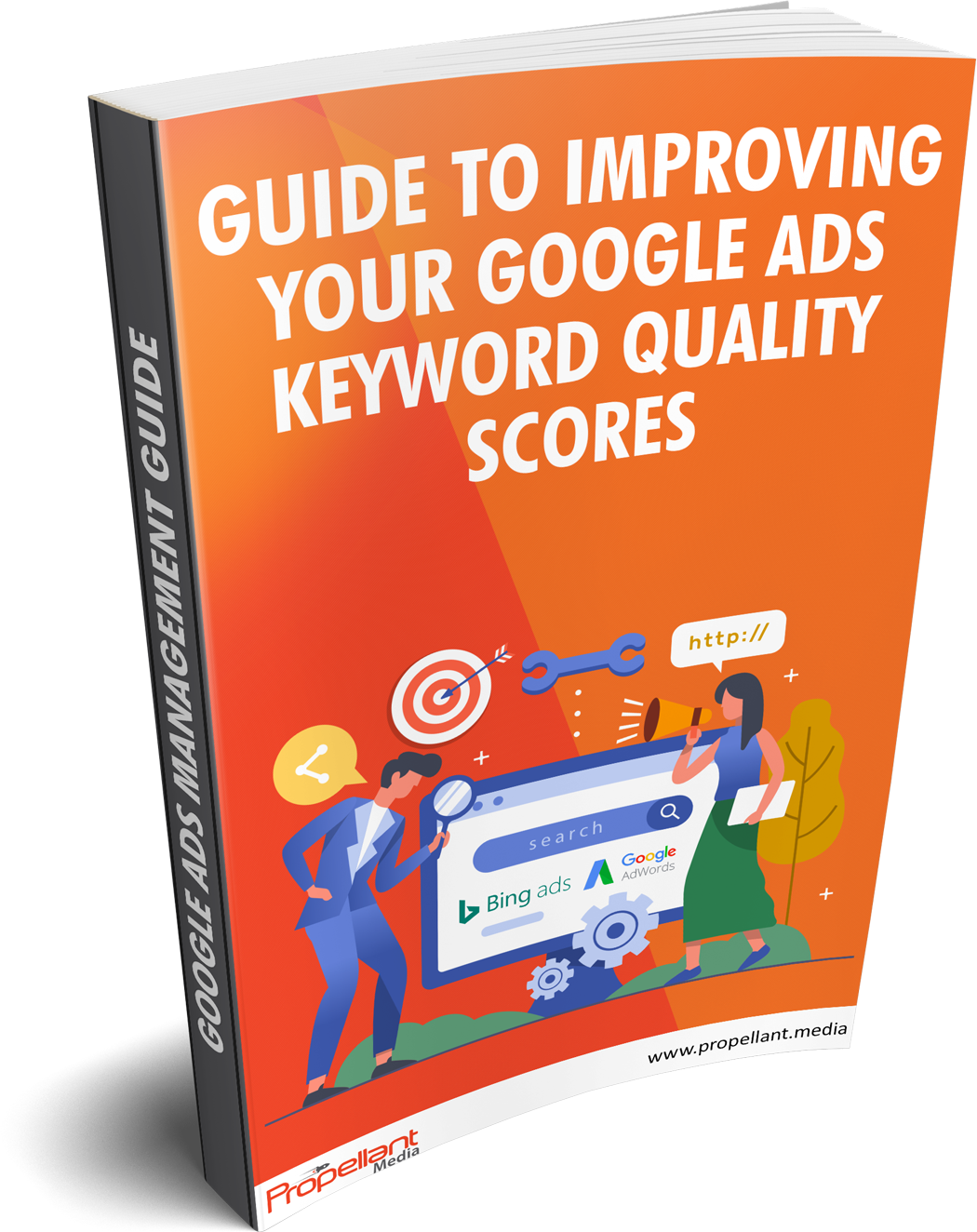Want a copy of our new PDF “Guide To Improving Your Google Ads Keyword Quality Scores” Just enter your email address for free access. BELOW IS AN EXCERPT FROM THE LIST

Quality score is a valuable metric in the Google Adwords world. It’s how Google measures the overall quality of your keywords relevant to your ads and your website/landing page. Google Ads scores on a 1 to 10 grading scale, 1 being the worst score you can get and 10 being the best.
The beauty about achieving a high quality score (10 out of 10), is the higher your quality score, the lower your overall cost per click will be over time and the more money you save on your campaigns. The more money you save on your campaigns, the more money and ad spend you have left over to spend on generating more clicks and leads to your business.
Many of us were left in the dark for some time by Google. We all sort of had a sense of what was required, but it was completely explicit until Google Ads shared the 3 areas that are required to produce a high quality score. Rarely did they even share what made up a respectable quality score. But after running Google Ads campaigns for many clients and seeing what actually drives those 10 out of 10’s, we gained some insights into the best practices that make up the 7 to 10 out of 10 quality scores.
So in order to improve your quality score, you need to focus on 3 areas that make up your quality score including Ad Relevance, Expected Click Through Rate, and Landing Page Relevance. We’re going to go through each of them.
Ad Relevance
Ad relevance is important to Google because it ties the keyword you’re targeting back to the Ad and essentially helps ensure your keyword is in fact relevant to the Ad Copy itself. Seeing a complete disconnect between a keyword and its ad copy only promotes a poor user experience which in the long run doesn’t help your business nor does it help Google. So we’ve identified several things you can do to improve your Ad Relevance portion of your quality score.
Single Keyword Adgroups (SKAG)
Single Keyword Adgroups are just that. Placing 1 keyword in their own adgroups and not lumping more than 2-3 into an individual adgroup. This not only allows for more granular control of your adgroups, but also allows for the creation of tightly controlled ads with improved overall ad relevance.
The Keywords You Pick
Picking the keywords you go after has a lot to do with ad relevance as well. When your keywords are impacting conversion rates, click through rates, keywords that elicit an overall positive impact on your ads, this provides for more ad relevance and better quality scores.

